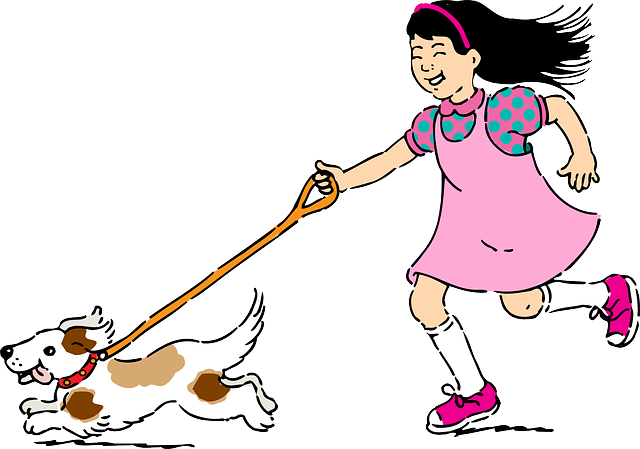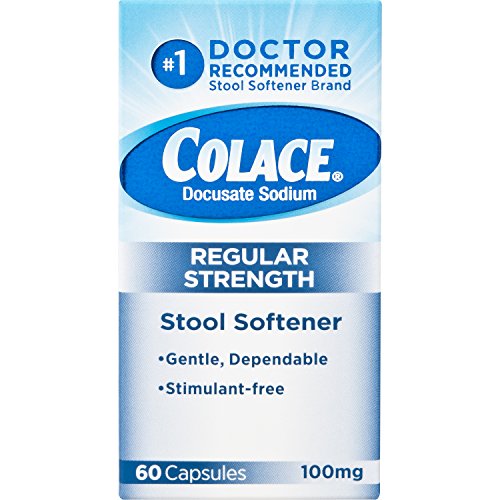
“My dog is constipated, what can I give her?” this one is a fairly popular search on Google. Maybe not as popular as dog diarrhea but popular all the same. Thankfully, it’s one with easy fixes and easy ways to prevent it. At the same time, it’s also one that could turn dire if not properly handled. Well, all situations are like that, right?
Anyway, in most cases, constipation stems from minor causes. However, in some cases, causes might actually be a serious illness or a disorder. So, it’s always good to check with your vet whenever you think your dog has constipation, especially if it isn’t resolved in 24 – 48 hours.
Again, you must keep in mind that changes to your dog’s diet must never be made without due consultation with your vet. Medication, as well, must never be administered without the consent of your vet.
Table of Contents
What Is Constipation In Dogs?
Usually, constipation in dogs occurs when said dog faces difficulty passing poop. It’s also said to occur when a dog passes poop but the feces are dry and quite hard or when said dog isn’t passing poop at all. In a case of constipation, usually, the poop has been in the colon for too long which causes the moisture in the feces to be reabsorbed. As a result, stools become dry and hard, and, therefore, difficult to pass.
How Can I Tell If My Dog Is Constipated?
Here are some ways to know that your dog is constipated:
- Your dog looks like he needs to poop or is trying to but can’t.
- Your pup has been hunching and straining for a while and all she’s able to produce is a small, hard poop.
- Nothing even comes out at all when she tries to poop, especially if this lasts up to 24 or 48 hours.
- Your dog appears bloated and seems to be in some kind of pain, especially after an unsuccessful attempt at popping.
- If eventually passed, poop might a weird color or appear darker than normal.
- Stool might contain a bit of blood and/or mucus as well as a mix of other odd stuff never seen before.
Watch this video from PetMD where Dr. Katy Nelson explains how you can tell if your dog is constipated, as well as causes and possible treatments.
Like we mentioned in our article on low-residue dog food (click here to read our article on low-residue dog food), it is important to observe and understand the nature of your dog poop. If you don’t know what’s normal, you might not be able to detect early enough when things begin to go wrong.
So, you must always be able to tell when there’s a difference in color, quantity, smell, and texture of your pet’s urine and stool. Checking for the presence of blood or mucus in the feces and urine are also important indicators to be mindful of as well.
Many times, this is the first sign of trouble, when things that go south, go south.
That said, how can you tell if your dog is constipated?
One, if your dog looks like he needs to poop or is trying to but can’t at the end of the day, he, most likely, is constipated.
Again, if your pup has been hunching and straining for a while and all she’s able to produce is a small, hard poop, he may be constipated. In some cases, nothing even comes out at all, again, he may be constipated, especially, if this lasts up to 24 or 48 hours.
Another sign is if your baby appears bloated and seems to be in some kind of pain, especially after an unsuccessful attempt at popping.
For dogs that eventually poop, you might find that her poop has a weird color and appears darker than normal. You might also notice that it’s a little bloody and “mucusy,” and then there are other odd stuff you’ve never seen before as well.
As these symptoms persist, you may also notice that your dog begins to vomit, lose her appetite and lose some weight too. However, dog parents rarely ever notice this as they’ve already tackled the problem early enough.
What Causes Constipation In Dogs?

The following are some of the reasons dogs get constipation:
- Diet too high or too low in fiber.
- Not exercising enough.
- Blockage or abscesses in the anal sacs.
- Enlargement of the prostate gland.
- Self-grooming in excess can cause hair to collect in poop, making it hard to pass.
- Ingesting stones, gravel, dirt, bones, toy fragments, plants, etc. When caught in the intestinal tract, these can cause blockage leading to constipation.
- Tumors, masses on the anus or within the rectum. These can cause a blockage in the anus or rectum, leading to constipation.
- Side effects from drugs.
- If the pelvis suffers a trauma.
- Pain in the leg which makes it painful for dogs to hunch and defecate.
- A disorder of the brain.
- Dehydration as a result of illness.
- Neuromuscular disorders. Sometimes the muscles or nerves suffer injury or some form of abnormality which can make it difficult to pass poop.
- Could also be a side effect of a surgical procedure or iron supplements.
- Stress from a change in surroundings or routine.
Are There Dogs That Are Particularly Susceptible To Constipation?
All dogs can come down with constipation. However, senior dogs seem to come down with constipation more often, probably, as a result of the degenerative joint disease that occurs with age.
My Dog Is Constipated, What Can I Give Her?
Here are a few remedies to try if you notice your dog is constipated.
- Increase fluid intake
- Psyllium.
- Canned pumpkin.
- Docusate sodium (100 milligram tablets).
- Ginger and chicken broth.
- Coconut fiber and ground dark green, leafy vegetables.
- Organic apple cider vinegar.
- Aloe juice (not the gel).
- Digestive enzymes and probiotics.

There are a number of home remedies that you can try if your dog is constipated. However, you are only allowed to use these remedies if the symptoms you notice are mild and have been there for less than a day.
Also, if your dog is on medication at the time of the constipation, you might want to go to the vet rather than try to fix it with home remedies. So, here we go, some things you can do when your dog is constipated.
1. Home Remedies For When Your Dog Is Constipated
i. Psyllium
Psyllium is an over-the-counter laxative for dogs. When taken, it absorbs water and bulks up the feces in the colon. Laxative action might take up to 3 days to occur, however, it’s proven to work.
Make sure you look out for the unsweetened, unflavored Psyllium, a common brand name is Metamucil.
Different dogs would require different doses for it to work.
1 – 10 pounds: 1 teaspoon.
11 – 30 pounds: 2 teaspoons.
30 pounds and over: 3 teaspoons.
When you administer Psyllium, ensure that you also give your dog plenty of water as well as other liquids.
ii. Canned Pumpkin
Plain canned pumpkin has a high moisture and fiber content and most dogs like its taste too. So, in most cases, it works. Also, if your dog prefers, it’s okay to mix this into his food too.
Here’s how to administer this depending on the size of your dog.
1 – 20 pounds: one tablespoon.
21 – 60 pounds: two tablespoons
60 pounds and over: three tablespoons.
Repeat this dosage twice to thrice daily.
iii. Docusate Sodium (100 milligram tablets)
This drug is fairly safe for dogs. However, you have to be careful because if you overdose, it could cause diarrhea and cramping. So, apply caution when using this drug and don’t repeat the dosage if you don’t see improvement after 24 hours.
For your dog, give ¼ to 1 tablet depending on the size of your dog. At most, give this tablet to your dog twice in 24 hours and if it does not work, go to your vet.
Please, stay away from such drugs that contain senna as they are rather too strong for dogs. Common brand names you can find for this drug are Surfak and Colace.
iv. Ginger And Chicken Broth

Mix a quarter teaspoon of ginger into half a cup of chicken or beef broth and offer it to your dog. Ginger is great for digestive health and also helps in bowel movement. As for the broth, the fats in it should also help to ease the process.
That said, it is important to note that you should never administer laxatives meant for humans to dogs.
v. Coconut Fiber And Ground Dark Green Leafy Veggies

You want to administer this at 1 teaspoon per 10 pounds of body weight. Give it to your dog once to twice daily.
vi. Organic Apple Cider Vinegar (ACV)
This natural wonder drug helps to alleviate a range of symptoms both in dogs and in humans. It’s also popular as a supplement for improving digestion and relieving constipation. Preferably, go for the raw, unfiltered type of ACV. Give your dog a quarter spoon of ACV per 10 pounds of body weight by mixing it into his food. Let him take this twice daily at most.
vii. Aloe Juice (Not The Gel)
Give her a quarter spoon of the juice per 10 pounds of body weight in her food, once to twice daily.
2. Increasing Fluid Intake
Another thing you want to do is to increase your dog’s fluid intake and there are a number of ways to do that.
i. Canned Dog Food/Homemade Bland Diet
It can be difficult to get a dog to drink enough water. If that’s your predicament, then there’s one way you can get your dog to still have his required water intake. Increase his water intake by increasing the fluid levels in his meals.
So, in essence, if you’re currently on a kibble diet, you want to change to a less dr diet like canned food. Make the changes gradual, but switch to canned dog food or a homemade bland diet.
ii. Add Some Liquid To The Kibble
If changing diet is impossible, then you can keep the dry dog food. However, you can add some water or a low-sodium broth to help your dog keep up with her daily water requirement.
3. Schedule More Potty Time
You want to schedule 4 to 6 potty opportunities for your dog to potty while she’s constipated. Each should be, at least, 10 minutes long so that she doesn’t feel rushed and she can comfortably poop, if she has to.
Now, sometimes, dogs like to walk around and sniff the things around them for a bit before they get down to business. Let them, they will eventually get around to it.
Next, take your dog to a quiet area with his preferred surface so that he can poop. It might sound crazy but there are some dogs who won’t poop until they are in certain places like behind a shrub or in tall grass.
4. Exercise Your Dog More

If your dog lives a sedentary life, such a lifestyle has the tendency to worsen constipation in your dog. On the other hand, with regular exercise, you’ll be able to stimulate some movement in the gastrointestinal tract.
Plus, exercise is also necessary to prevent obesity which also increases your dog’s chances of suffering constipation among other health conditions.
You want to make it a point to exercise your dog, at least, 45 minutes every day. It might be difficult to achieve 45 minutes at a stretch but it does not have to be all at once. You can have it in two sessions instead. The most important thing is to exercise your dog.
5. An Enema (To Be Administered Only By Your Vet)
Please do not administer an enema to your dog on your own. If your dog needs an enema, let your vet do it if your dog needs it. If you do it yourself, you could risk injuring your dog or even poisoning him. So you must never carry it out on your own.
6. Drugs To Increase Contractile Strength Of The Large Intestine
There are some medications that strengthen the colon. Specifically, they increase contractile strength so that he can pass the hardened stool.
7. Digestive Enzymes And Probiotics
A combination of these supplements can help your dog to deal with his maldigestion. Many times, maldigestion is the reason dogs come down with constipation and diarrhea. If you don’t know what products you want to go for, consult your holisitc vet. They should be able to advise you accordingly.
8. Chiropractic Massage, And Acupuncture/Pressure
These methods have helped to relieve chronic constipation in dogs and pets generally.
Should I Be Worried About My Dog’s Constipation?
For a normally healthy dog, if constipation begins and does not resolve in 24 to 48 hours after trying some homemade treatments, you should be concerned. Things like these can get potentially life-threatening so keep a close eye and consult your vet if things get out of hand.
If it does resolve in 24 to 48 hours and then recurs, you should see your vet. This might be an indication that something more complicated might be going on. Oftentimes, these complications require urgent medical intervention and lifestyle changes for your pet.
There is a thing called obstipation which is a chronic form of constipation. In such unfortunate cases, the dog finds it impossible to pass feces without some external help. In such a case, the colon enlarges, retaining a growing mass of hardening stool.
When a dog gets obstipated, it’s a very uncomfortable situation as they get extremely uncomfortable and try to poop several times without success.
If medical intervention is not sought, the obstipated dog would begin to lose her appetite, get lethargic, and start vomiting.
Depending on how grave the matter is, medical intervention can mean administering an enema, passing an IV for hydration or a manual cleanout of the intestine performed under anesthesia. Oftentimes, this procedure would be carried out twice in order to take out stool that must have lodged in inaccessible areas of the GIT.
If obstipation is caused as a result of colon injury, neuromuscular disorder, or a disorder of the pelvis, then a colectomy is usually carried out. A colectomy is a surgical procedure in which the doctor takes out a part of the bowel or corrects bowel abnormalities.
What Happens If A Dog’s Constipation Is Left Untreated?

If you don’t attend to your dog’s constipation and it’s left untreated, it could lead to obstipation. Obstipation is a chronic form of constipation which could eventually lead to the enlarging of the colon. Hence you must attend to your dog’s constipation and attend to it quickly.
Check out these other helpful articles below:
- Blue Buffalo Rocky Mountain Weight Loss Dog Food — detailed review.
- Carlson Secure and Foldable Dog Crate — in-depth review.
- PetSafe KeepSafe Break Away Collar — in-depth review.
- New World Folding Metal Dog Crate — in-depth review.
- Hot Spot LCD Shock Control Dog Collar — in-depth review.
- Midwest iCrate Folding Metal Dog Crate — in-depth review.
What Not To Do If Your Dog Is Constipated
In this video is some advice on Francis Ross on her best homemade remedies for constipation in dogs including increasing water intake and switching to wet food.
- Do not administer laxatives meant for humans to your dog without prior consent from your vet. Some human laxatives are not safe or even effective in certain situations. So, avoid the guessing game and stick to laxatives for dogs like Lactulose.
- Do not give your dog high-fiber foods meant for humans in an attempt to relieve him of his constipation. Remember that grains are not a natural part of your dog’s diet. Call your holistic vet for advice on what high-fiber foods to get for your dog.
(Click here to read our article on high-fiber dog food).
- Do not give your dog mineral oil as your dog can inhale it into his lungs which can cause permanent damage. Plus, it’s not even effective.
- Never administer enemas alone at home. Let your vet do that.
Conclusion
In the end, constipation does not have to be a big deal if it is handled well and on time. We hope your question “my dog is constipated, what can I give her?” to the max. If you still have other concerns, remember, this is strictly for educational purposes and the best to contact in all cases regarding your dog’s health is your vet.
My Dog Is Constipated, What Can I Give Her? — Related FAQs
How Do You Get A Dog Unconstipated?
There are a number of ways to get your dog unconstipated. Some of them are:
- Increase fluid intake.
- Administer some home remedies like organic ACV, ginger and chicken broth, or canned pumpkin.
- Schedule more potty time.
- Exercise your dog some more.
- Digestive enzymes and probiotics also help.
- Chiropractic massage and acupuncture could also work.
Can Milk Help Dogs With Constipation?
Milk has been known to have some laxative effect in dogs. So, it could help with your dog’s constipation.
However, be careful to give only little amounts of milk at a time to your dog as many dogs don’t digest it well. Milk should not become a part of your dog’s daily diet.
Can I Give My Dog Coconut Oil For Constipation?
A bit of coconut oil or olive oil can help with mild constipation in dogs. For a small breed, add only about half a teaspoon of coconut oil or olive oil to their food. For large breeds, you can add up to two teaspoons.
For unhealthy, overweight dogs currently on a low-fat diet, you want to be careful about using coconut oil or olive oil to relieve constipation.
Can I Give My Dog Human Laxatives?
Never give your dog human laxatives as such drugs are way too powerful for their systems. If you think your dog needs a laxative, speak to your vet about getting a laxative that’s approved for veterinary use.
Stool softeners and laxatives should never be self-prescribed. Always go to your vet for a prescription before getting one.
How Much Pumpkin Do You Give A Constipated Dog?
Here’s how to administer this depending on the size of your dog.
- 1 – 20 pounds: one tablespoon.
- 21 – 60 pounds: two tablespoons
- 60 pounds and over: three tablespoons.
Repeat this dosage twice to thrice daily.
How Long Does It Take For Laxatives To Work On A Dog?
Typically, it takes between 24 hours to 48 hours for the effects of a laxative to begin to kick in. In this time period, you want to ensure that your dog has unfettered access to enough drinking water as this would help to fast-track the process. After a couple of days, your dog should begin to experience some relief from his symptoms.






